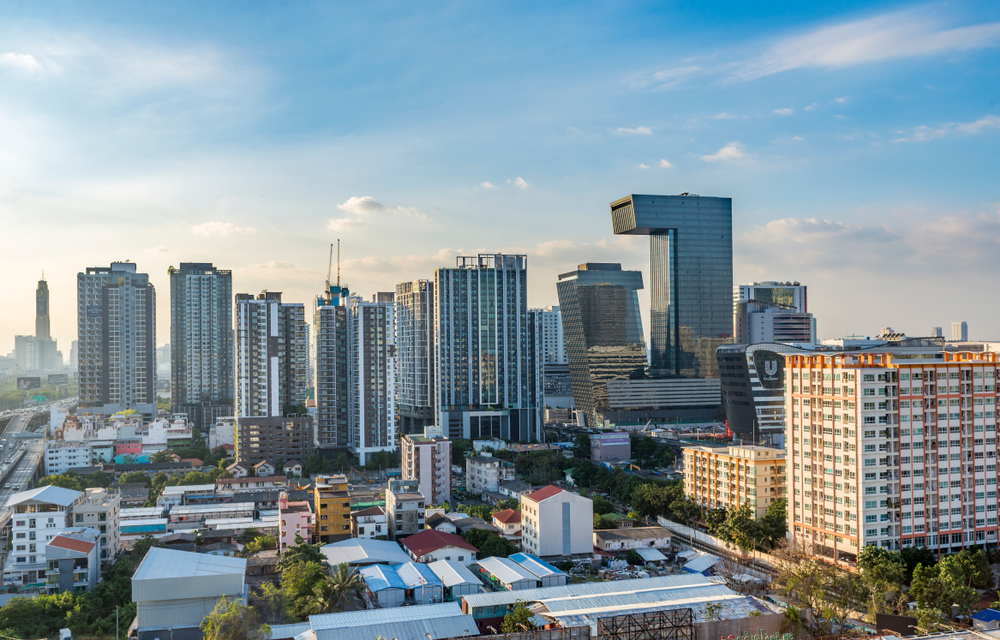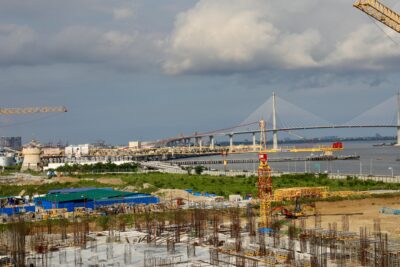Thai property sector reforms to propel economic growth beyond 4%
Government initiatives target foreign investments and stimulate the housing market for sustained growth

Thailand’s economy is projected to grow slightly more than four percent this year, fuelled by the new measures approved on the 9th of April aimed at revitalising the property sector, according to the Ministry of Finance, reported by Reuters. The government’s strategic move is expected to generate significant economic activity, translating to THB800 billion (USD29.6 billion) in property trades, THB400 billion in investments, and THB120 billion in consumption.
Pornchai Thiraveja, head of the ministry’s fiscal policy office, noted that the stimulus measures would contribute an additional 1.7-1.8 percentage points to the nation’s growth. “With the measures, the economy this year will grow a little over four percent,” Thiraveja stated during a briefing.
The property sector initiatives, approved by the Cabinet, include reduced transaction fees for houses worth up to THB7 million. Ownership transfer fees and mortgage registration fees have been slashed to 0.01 percent, down from two and one percent, respectively. Moreover, the government plans to offer THB30 billion in home loans through state banks, alongside tax breaks for certain property developers and tax deductions of up to THB100,000 for individuals looking to build homes.
Deputy Finance Minister Krisada Chinavicharana highlighted the Cabinet’s directive for relevant agencies to consider easing rules on foreign ownership of Thai property. Furthermore, the ministry intends to request the central bank to relax loan-to-value (LTV) rules, a move Prime Minister Srettha Thavisin has advocated for.
Prime Minister Srettha emphasised the need for substantial economic stimulus, aligning with the government’s broader agenda, which includes a delayed flagship “digital wallet” handout scheme worth THB500 billion aimed at boosting consumption in the final quarter of 2024.
The foreign investment in Thailand’s real estate market in 2023 saw a significant uptick. According to the Government Housing Bank’s Real Estate Information Centre (REIC), as reported by The Nation, foreigners spent over THB73.16 billion on 14,449 condominium units, marking a 25 percent increase from the previous year. REIC Director Wichai attributed this growth to a recovering tourism industry and government policies waiving visa requirements for visitors from China, Kazakhstan, India, and Taiwan. Chinese nationals led the purchases with 6,614 units, followed by Russians, Americans, Myanmarese, and Taiwanese buyers.
In that same year, the 18th PropertyGuru Thailand Property Awards recognised outstanding developers contributing to the sector’s growth. Sena Development was awarded Best Developer, while Habitat Group Co., Ltd. was named Best Lifestyle Developer. In the South, the accolades went to Phuket9 [Best Developer (Phuket)], Botanica Luxury Phuket Co., Ltd. [Best Luxury Developer (Phuket)], Wallaya Villas Development [Best Housing Developer (Phuket)], MontAzure [Best Mixed Use Developer (Phuket)], and Andaman Asset Solution [Best Boutique Developer (Phuket)]. The Riviera Group and Patta Development Co., Ltd. received awards for Best Condo Developer and Best Housing Developer, respectively, on the Eastern Seaboard, and PNP Real Estate Co., Ltd. was honoured as the Best Breakthrough Developer in Hua Hin.
Marciano Birjmohun, vice chairman of the Singapore-Thai Chambers of Commerce and a member of the judging panel for the PropertyGuru Thailand Property Awards shared his insights on the government’s new measures. He suggested a phased approach to increasing foreign ownership of condos and extending leases, while monitoring the impact on affordability and prices. Birjmohun also recommended geographic limitations to manage foreign investment without straining the primary housing market.
“Reducing bureaucracy and offering a transparent market with an efficient process for foreign investors to acquire and manage properties are essential steps,” Birjmohun stated. He also highlighted the importance of tax breaks or exemptions for foreign residents or retirees and suggested for the country to invest in infrastructure projects near residential areas to attract long-term foreign residents.
To boost the residential sector in the long run, Birjmohun emphasised the need for upskilling opportunities in International Project Marketing for developers and agents. “There is lack in cross cultural communications, soft skill developement, and cultural conformity, so there is a need to leverage the profession of real estate practices.” He also called for the exclusion of the FET/TorTor3 requirements (Foreign Exchange Transaction Form) for foreign buyers, which he argued have led to an underground economy of money handlers and exchange companies.
With these comprehensive measures and strategic initiatives, Thailand’s property market is poised for robust growth, setting the stage for a dynamic and resilient economic future.
Know any award-worthy residential, commercial, or industrial projects in the Kingdom? Nominate them for the 19th annual PropertyGuru Thailand Property Awards on or before 5 July 2024. To know more, visit AsiaPropertyAwards.com/Award/Thailand/.
Gynen Kyra Toriano, Digital Content Manager at PropertyGuru, wrote this article. For more information, email: [email protected].
Recommended
New leader, new opportunities: How Hun Manet is shaking up Cambodia’s real estate game
Hun Manet is overseeing decent economic growth and widening access to the country’s real estate market for foreigners
Singapore embraces inclusive housing reforms amid resilient demand
The Lion City’s regulatory strength continues to exert appeal for international investors
Trio of riverfront towers to crown Phnom Penh skyline
Diamond Bay Garden, a skyline-changing development in Phnom Penh, stands at the confluence of style and ambition
Big data takes over real estate: From market trends to finding dream homes
Big data is transforming the real estate industry by enabling analysis of market trends, property performance, and neighbourhood dynamics








